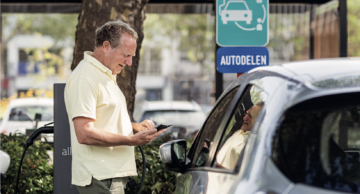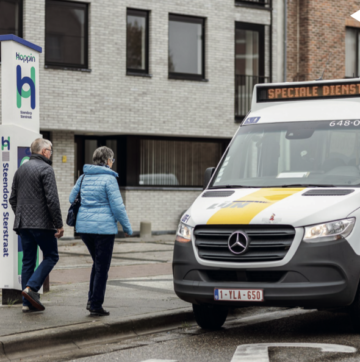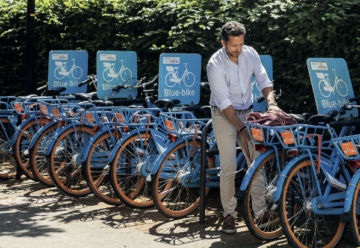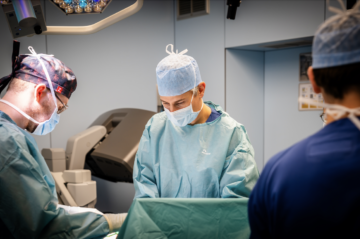MOBILITY AS A SERVICE

To promote sustainable combimobility, we are working on Mobility as a Service (MaaS) in Flanders. MaaS gives users access to multimodal transport solutions with greater user-friendliness, putting the end user at the centre. But organising mobility is a complex task. Users want control and reliability, but also freedom and flexibility. For this, we need reliable apps and agreements with providers and all MaaS actors. A full-fledged MaaS ecosystem, as it were. We are on the lookout for international knowledge sharing and cooperation to ensure combimobility reaches far beyond our own borders.
Objectives
To build the Flemish MaaS ecosystem, a process of cocreation is ongoing to establish a supported Flemish MaaS Agreement Framework. Five stakeholder groups are working on this: users, MaaS providers, transport providers, local authorities and data brokers. All of them see MaaS as a digital lever to realise sustainable combimobility. They strive for:
• An optimal mix of smart, inclusive and/or complementary transport modes
• A well-balanced and frequent transport offer
• Transparent, uniform, clear and accessible communication
• A balance between social and commercial interests

One stop shop for mobility
For this sustainable combimobility to succeed, proper market functioning is essential. To this end, there is an agreement framework between stakeholders, but also the Flemish Government, which acts as a supervisory and supporting authority.
To standardise the structure of data in consultation with all stakeholders, we are also committed to Open Standards for Linked Organisations. With a uniform standard, we want to enrich data flows, make initiatives easier to find and understand and combine data better with other data sources. In doing so, we are building a vocabulary based on existing international standards. This is the only way to create a one stop shop solution (plan, book and pay).

Together towards MaaS
By further developing MaaS, we want to help every Fleming combine transport modes in a sustainable and easy way, thus enabling the transition to an ambitious mental and modal shift. But MaaS becomes even more valuable when we can also meet those needs beyond our national borders. That is why we are working with foreign partners to share knowledge and jointly develop an international MaaS ecosystem, in which everyone can travel via safe, smooth and sustainable combimobility.
This article was provided to us by the Department of Mobility & Public Works

Latest insights & stories

AI and data integration: an indispensable symbiosis

Seven cybersecurity trends and threats for 2025
Last year saw another alarming increase in cyber-attacks, with hackers using increasingly sophisticated methods. Proximus NXT and its security partners explain how to navigate a minefield of vulnerabilities in 2025.
IT is innovating faster than ever. We should embrace the limitless possibilities in cloud adoption, generative and non-generative artificial intelligence and the increasing use of APIs, says our expert panel. At the same time, cyber criminals see such trends as opportunities to compromise businesses and are capitalizing on new vulnerabilities.

The az groeninge hospital innovates care with 5G
A private 5G network at az groeninge provides the platform for the hospital to roll out innovation. From remote monitoring with biosensors to robotic surgery and training using VR: everything is focused on patient care.